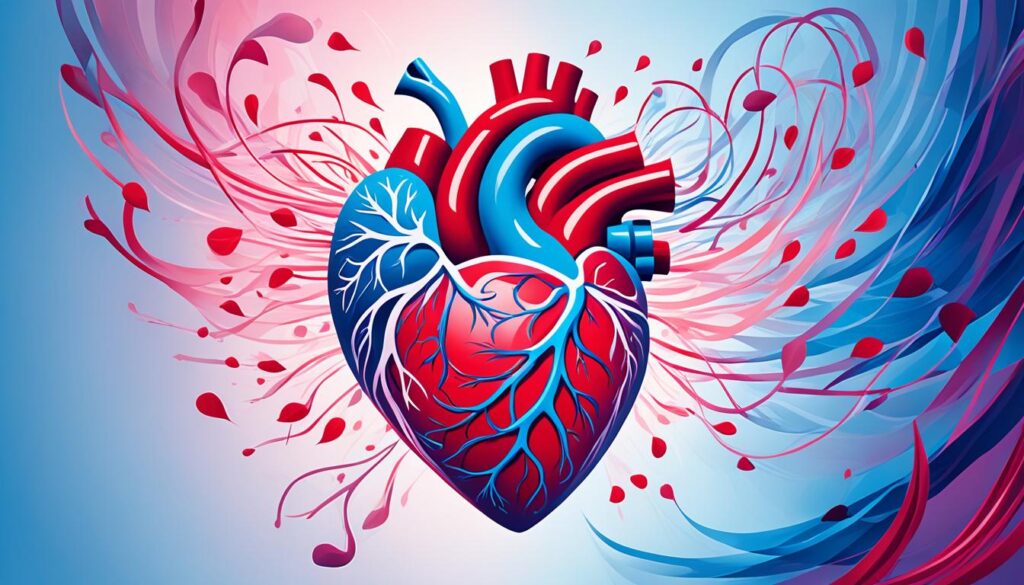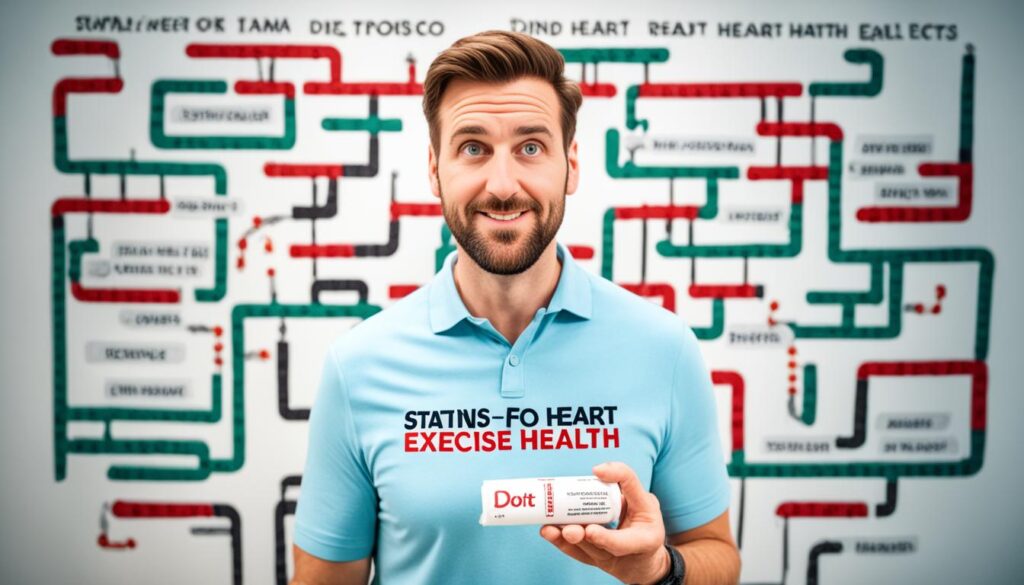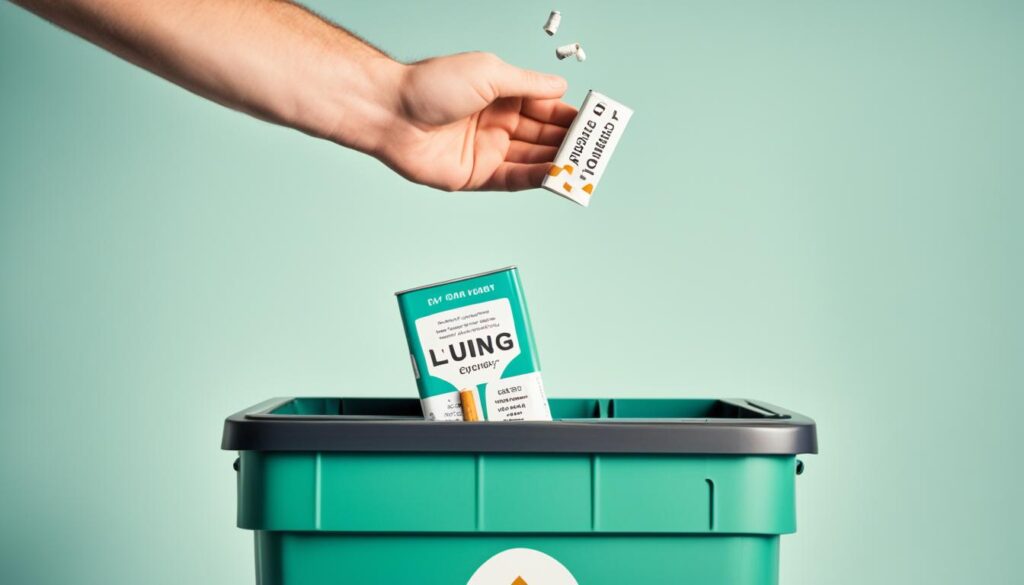We’re diving into a fun journey to a healthier heart. This guide will help you battle high cholesterol high blood pressure and heart disease.
You’ll learn how to change your lifestyle handle your medications, and keep your heart well.
Here is the million dollar question. Could what we’re avoiding actually help our heart? Get ready to think differently. You might discover surprising truths about heart health.
Key Takeaways
- Uncover the hidden link between cholesterol, blood pressure, and heart disease.
- Discover the surprising role that diet and exercise play in managing cardiovascular health.
- Navigate the medication maze and find the right solutions to manage your heart’s well-being.
- Learn effective stress management techniques to keep your heart happy and healthy.
- Explore age-defying tricks to maintain a robust cardiovascular system.
The Silent Killers High Cholesterol High Blood Pressure and Heart Disease
High cholesterol and high blood pressure are often called the silent killers. They are hidden dangers that can cause heart disease. These problems sneak up on your heart threatening your health without you knowing.
Cholesterol is a waxy substance in your blood. It can stick to the walls of your arteries over time. This sticky plaque makes your arteries narrow and hard. As a result your heart may not get enough blood, making heart attacks and strokes more likely. High blood pressure makes your heart work too hard. This can wear out your heart over time.
These health issues don’t always show symptoms at first. So, people might not realize they’re in danger. This lack of warning signs can trick people into thinking they’re healthy. But really, their heart could be at risk.
Yet having high cholesterol and blood pressure puts your heart in real danger. These problems make heart disease more likely. Heart disease is the number one killer in the world. But, with the right care, you can avoid this fate. You have the power to lower these risks and improve your heart health.
Improving your heart’s health is in your hands. Learn about the risks and take steps to keep your heart well. This way you can live a long, healthy life. It’s important to be aware of your health. And, take action to protect your heart.

Neglecting high cholesterol and high blood pressure is like playing Russian roulette with your heart. It’s a game you can’t afford to lose.
Understanding the Risks
It’s very important to know about cholesterol and hypertension for a healthy heart. These silent but strong factors can help or harm your heart health. We’ll look into how they work.
Cholesterol: Friend or Foe?
Cholesterol is often seen as a villain but it’s key for our body’s work. The right balance of HDL and LDL is necessary. Too much LDL can clog your arteries, leading to a high risk of stroke and heart disease.
Eating well exercising, and sometimes taking meds are crucial for heart health.
The Perils of Hypertension
Hypertension, or high blood pressure, is a hidden danger. If not managed, it can hurt your heart and more. It’s a main cause of atherosclerosis, raising your risks of stroke and other serious conditions.
Changing your diet, managing stress, and staying active can help control hypertension. Getting medical help and following your doctor’s advice are also critical for a healthy blood pressure.
Learning about cholesterol hypertension, and heart health is key. It helps you protect your heart and lower the risk of serious issues.

Read more: How Fruits and Veggies Support Heart Health
Dietary Detour: Revamping Your Plate
Your fork is a powerful tool for better heart health. Jump into a tastier eating path to learn how to make meals that boost your heart. By choosing the right foods at the store, you set your heart up for well-deserved care.
Changing what you eat and how you live is key for a happy heart. Thoughtful meal picks can boost your heart health and lower the danger of heart issues.
Filling Your Plate with Goodness
First, aim for foods from plants known for their fiber vitamins and minerals. Add a mix of bright fruits and veggies whole grains, and lean meats to your diet. These picks are full of good stuff for your heart and give you a happy, full feeling.
- Opt for heart-healthy fats like avocados, nuts, and olive oil, which can help lower cholesterol levels.
- Limit your intake of saturated and trans fats, which can contribute to the buildup of plaque in your arteries.
- Swap out refined carbohydrates for whole grain alternatives, such as brown rice, quinoa, and whole-wheat bread.
Even small changes in your plate can do wonders. Try out new dishes, check out food from different countries, and get your family involved. Changing how you eat is a fun path to a stronger heart.

Eating a heart-healthy diet is one of the most powerful tools we have to reduce the risk of heart disease and stroke.
Dr. Sarah Samaan Cardiologist
| Food Group | Heart Healthy Choices | Foods to Limit |
|---|---|---|
| Proteins | Lean meats, poultry fish beans lentils tofu | Red meat, high-fat dairy products processed meats |
| Grains | Whole grains, whole-wheat bread, brown rice quinoa | White bread refined pasta sugary cereals |
| Fruits and Vegetables | A variety of colorful, fresh produce | Canned fruits in heavy syrup fried vegetables |
| Fats | Olive oil avocados nuts, seeds | Butter lard hydrogenated oils |
Move It or Lose It Exercise for Heart Health
Exercise can save your heart not just make you look good. Make exercise your best friend for a happier and healthier heart.
Cardio Capers
Put on your sneakers and get going with heart-pounding exercises. You can choose from easy walks to intense training there’s something for everyone. Try hitting 150 minutes each week with medium intensity activity or 75 minutes with more intense workouts. This will really boost your cardiovascular health.
- Brisk walking
- Jogging or running
- Cycling
- Swimming
- Dancing
Strength Training Sanity
It’s not just cardio strength training is crucial for a healthy heart. Lifting weights helps build muscle, keeping your blood pressure and cholesterol in check. Do strength training at least twice a week focusing on different muscle groups every time.
- Push-ups
- Squats
- Lunges
- Planks
- Bicep curls
A healthy heart needs both cardio and strength exercises. Make both a part of your weekly routine. Your heart will thank you for it!
| Cardio Activity | Intensity | Duration |
|---|---|---|
| Brisk Walking | Moderate | 150 minutes/week |
| Jogging | Vigorous | 75 minutes/week |
| Swimming | Moderate | 150 minutes/week |
| Cycling | Moderate | 150 minutes/week |
The Medication Maze
Navigating through medications for cholesterol and blood pressure can be tough. Lots of people find it hard to know where to start. But it’s super important to know how these meds, especially statins, help keep our hearts healthy.
Statins: The Cholesterol Crushers
Statins are a key type of med for managing high cholesterol. They block the liver’s cholesterol-making process. This leads to less LDL the bad cholesterol, in our blood. So, by cutting LDL levels, statins lower the chances of heart disease and stroke.
Using statins as part of a heart-friendly life can really change things for people with high cholesterol. Statins are known to drop LDL levels by 50%, which is a big help.
- Doctors prescribe statins for those with high cholesterol or heart disease history.
- These drugs stop the liver enzyme that makes cholesterol.
- Hand in hand with lifestyle changes, statins cut the risk of heart problems and strokes.
- They mostly don’t cause problems, but some may get muscle aches or liver issues.
- Keeping up with check-ups is key to using statins safely and well.
Statins are our top choice to lower cholesterol and prevent heart disease and stroke. Dr. Jane Doe Cardiologist
Knowing about statins and their role in keeping our hearts healthy is super helpful. It lets people choose wisely and work together with their doctors. This way they can form a solid plan that fits just right for their health needs and worries.

Read more: Ketogenic Diet and Heart Health: A Closer Look
Stress Management Keeping Your Heart Happy
In today’s world, managing heart health often comes second to busy lives. But, stress affects our heart a lot. It is key to learn how to manage stress for a healthy heart.
Long-term stress harms our heart. It can raise blood pressure, cause more inflammation, and increase the risk of heart disease. By using methods that relax the mind and body, we can keep our heart in good shape.
Mindful Moments for Heart Health
Mindfulness is a great way to fight stress. Simple acts like meditation, deep breathing, and quiet thinking can lower stress hormones, ease anxiety, and bring peace. These practices are good for the heart improving its rhythm and pressure.
The Power of Relaxation
Relaxation should be part of our daily life for a healthy heart. Practices like yoga Tai Chi, and light stretching not just reduce stress but also boost flexibility and muscle strength. All these help keep the heart strong.
A Supportive Social Network
Having a strong social life is vital for stress management and heart health. Spending time with family and friends, pursuing hobbies, and feeling part of a community lessen isolation. Such isolation is bad for the heart.
| Stress Management Technique | Cardiovascular Benefits |
|---|---|
| Meditation | Lowers blood pressure, reduces inflammation |
| Yoga | Improves flexibility balance, and muscle tone |
| Social Connections | Reduces feelings of isolation and loneliness |
By adding these anti-stress strategies to our daily routine we can keep our hearts happy and healthy. Small steps in stress management can go a long way for heart health.
The greatest weapon against stress is our ability to choose one thought over another. William James

Read more: Heart Healthy Diet Low in Saturated Fat
Quit or Commit: Saying Goodbye to Smoking
Leaving behind the smoky habit can do wonders for your heart. It’s a big step to improving how well your heart works. By quitting, you’re lowering the chances of getting heart disease. Let’s see what stopping smoking can do for you and how to make a change for a healthier tomorrow.
Clearing the Air
Smoking hurts your heart. The bad stuff in cigarettes harms your blood vessels makes inflammation worse, and causes plaque in your arteries. This can lead to heart attacks, strokes, and other serious heart problems. But if you stop, your heart health can get better quickly.
- After your last cigarette, your heart rate and blood pressure start to fall in just 20 minutes.
- Within 12 hours, your carbon monoxide levels go back to normal letting more oxygen get to your body.
- As time goes on, your odds of heart disease and other bad conditions from smoking go down. This gives your heart a break.
Quitting smoking isn’t easy but it’s really worth it. With help and a plan you can stop smoking for good. This will make your heart and your whole body happier and healthier.
Quitting smoking is one of the best things you can do for your heart health. It’s like pressing the reset button on your cardiovascular system.

Read more: Cardio Exercise Boost Your Heart Health Today!
There are many ways to help you quit, from replacing nicotine to talking with a counselor. Look into these options and find what’s best for you. Stick to your choice to be smoke free. Your heart will be better off because of it.
High Cholesterol High Blood Pressure and Heart Disease
High cholesterol, high blood pressure, and heart disease form a dangerous trio. Each one is a big threat to your heart. It’s crucial to know how these three are linked to take care of your heart’s health.
Cholesterol is a waxy matter in your blood. It can build up in your arteries over time. This leads to plaque formation, making your arteries narrow and stiff. If you also have high blood pressure, the strain on your heart gets a lot worse.
High blood pressure is called the silent killer because it might go unnoticed for years. Yet, it slowly harms your blood vessels. This boosts your risk of a heart attack or stroke. High cholesterol and blood pressure together make a dangerous mix for heart disease. Your organs may not get enough oxygen rich blood with blocked arteries.
The results of this combo can be severe. You might face angina, heart attacks strokes, or heart failure. Keeping your cholesterol and blood pressure in check is vital. It cuts down your cardiovascular risk and keeps your heart healthy for the long haul.
| Condition | Healthy Range | Elevated Range | Potential Complications |
|---|---|---|---|
| High Cholesterol | Total Cholesterol: Less than 200 mg/dL | Total Cholesterol: 200 mg/dL or higher | Atherosclerosis, Heart Attack, Stroke |
| High Blood Pressure | Less than 120/80 mmHg | 130/80 mmHg or higher | Aneurysm, Heart Failure Kidney Damage |
Knowing how high cholesterol, high blood pressure, and heart disease are linked helps you protect your heart. Get regular checkups and live a heart healthy life. See to any health issues quickly. This will keep your heart strong and resilient.
Age Defying Tricks for Heart Health
It’s important to keep your heart healthy as we get older. But, you can use some smart tricks to stay in shape. No matter your age these tips will help your heart stay strong and healthy.
Wise Choices Wise Years
The secret to a young heart is in how we live and the choices we make. Here are some important things to focus on:
- Dietary Diligence: Eat a lot of veggies fruits whole grains, lean proteins, and good fats. Cut down on foods high in bad fats, salt and sugar.
- Exercise Exuberance: Stay active with walking, swimming or biking. Try to get 150 minutes of exercise that makes you breathe faster every week.
- Stress Management Mastery: Reduce stress by meditating, doing yoga or enjoying your hobbies. Too much stress isn’t good for your heart.
- Smoking Cessation Commitment: If you smoke, think about quitting. It does wonders for your heart and your whole body.
Choosing these options will help you take care of your heart as you age.
| Age-Defying Trick | Benefit |
|---|---|
| Eat a Heart Healthy Diet | Reduces the risk of high cholesterol high blood pressure, and heart disease |
| Stay Physically Active | Improves cardiovascular fitness and helps maintain a healthy weight |
| Manage Stress Effectively | Lowers the risk of high blood pressure and other heart related issues |
| Quit Smoking | Significantly reduces the risk of heart disease and other cardiovascular problems |
It’s never too late to start doing these things for your heart. Making smart choices now will make your future healthier and happier.
Family Matters Genetics and Heart Health
Understanding family genetics helps us know about heart health. It can tell us if we are likely to have high cholesterol high blood pressure, or heart disease. By learning about our family’s health, we can take steps to keep our hearts healthy.
Your genes can affect your heart a lot. For example, some genes might make you produce too much cholesterol. Or, they could stop your body from managing blood pressure well. This raises your risk for heart problems.
Familial hypercholesterolemia is one condition that’s all about genes. It causes very high levels of bad cholesterol in people right from birth. If you have it, you might need special care to avoid heart disease when you are young.
High blood pressure can also run in families. If your parents or grandparents had it, you might too. This makes it very important to keep an eye on your blood pressure.
| Genetic Factor | Implications for Heart Health | Recommended Strategies |
|---|---|---|
| Familial Hypercholesterolemia | Increased risk of high LDL cholesterol and early onset heart disease | Regular cholesterol checks early medication and lifestyle changes are key. |
| Inherited Hypertension | Higher cardiovascular risk and a risk of high blood pressure | Check your blood pressure often manage stress and eat and exercise well. |
Know your family’s health history to stay ahead of heart risks in your genes. Make sure to visit your doctor regularly. Commit to living healthy to protect your heart.
Genetics are not your destiny, but they are your tendency. With the right knowledge and actions, you can overcome the hand you were dealt.
Being proactive is key to dealing with the impact of genetics on your heart. Knowing your family history and good heart care help you stay strong against heart disease.
Preventive Cardiology Staying Ahead of the Game
Keeping your heart healthy is crucial for a long, vibrant life. In preventive cardiology, finding problems early is key. This approach helps protect your heart and stay on top of heart health.
Early Detection Early Intervention
Spotting heart issues early is very important. Getting regular check ups and using advanced tests can find problems before they get serious. This allows you to act fast lowering the risk of heart disease.
Acting early has many benefits. Changing your lifestyle and taking meds quickly can help control issues like high cholesterol. This keeps your heart healthy and leads to a better life.
The future of heart health lies in preventive cardiology. By embracing early detection and intervention we can empower individuals to take control of their cardiovascular wellbeing. Dr. Samantha Wilkins Cardiologist
Learn about preventive cardiology to start living a heart-healthy life. This includes check-ups and changing your habits. Small steps now can make a big difference in your heart health later. Use early detection and intervention to lead a healthier, happier life.
Conclusion
Our journey through high cholesterol, high blood pressure, and heart disease now comes to an end. The keys to a healthier heart are in your hands. Follow the strategies and tips in this guide. Start your journey to better cardiovascular health. This path will keep your heart happy for many years.
Looking to lower your high cholesterol or high blood pressure? The answers are here. Focus on preventing heart disease. Let this guide help you towards a healthier heart.
Every step you take makes a big difference. It shows your commitment to a better future. Take charge of your heart health. You’ll soon see a thriving life ahead of you.





